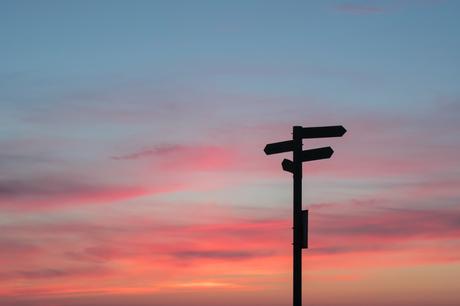
Every morning I get a news brief from the Council of Foreign Relations. The news brief is a short summary of what's going on in the world. I strategically read it with a frothy homemade latte. The irony of that is not lost on me. I sit in comfort reading what is usually difficult news from around the world.
I read about the United Nations preparing for mass displacement from conflict in Ethiopia, how hundreds have been killed and hundreds of thousands displaced. I read about how the insecurity of the entire continent of Africa is at stake with this crisis. I read about how Egypt's human rights leader has been arrested, a government crushing dissent. And then there is pandemic news from every part of the globe.
The fact that I'm safe, drinking a great and frothy cup of coffee only serves to make me feel more depressed, more helpless.
And that's the thing - in the face of all this, we are helpless. There is little most of us can do to make any of these situations better. It would not help for us or anyone involved to get on a plane to go to the heart of the conflict in Ethiopia.. When my oldest brother was in Pakistan helping in earthquake relief he told me of a group that sent hundreds of people to Pakistan. He said there were around 250 people wandering around the hillside with no language skills, no knowledge of Pakistan, and no knowledge of humanitarian aid. It was a disaster, but they all went home with good pictures of the tragedy.
It's the book of Kings where I find comfort today. For those not familiar, these are books in the Old Testament. They are full of blood shed and violence, full of stories of tragedies, full of the sordid tales of leaders and others doing evil things.
These books tell the narrative of the different Kings of Israel and Judah. The books begin with David's death and sweep us through history looking at every King. I've no idea what scholars say about the books of Kings but it strikes me that the theme is simple; really simple.
Either they did what was good, or they did what was evil. There is no ambiguity. We are told their names and immediately after their names we have an assessment of their lives. They either chose to do right or they chose to do wrong.
Could it be that simple? Could it be that I complicate my life far more than I need when it's really about choosing God and good? About recognizing that there can be a thin line between evil and good, and if I am in the habit of choosing good, then the thin line becomes a lot thicker?Could it be that in the middle of these worldwide tragedies that are so far away in distance, and yet so close to all of us in terms of news reports, that what I am called to is to choose good?
Is it that simple?I can't help in any of these parts of the globe but I can commit to good in my small corner of Boston. I can commit to integrity today. I can commit to not comparing myself to strangers on the internet, to not getting lost in envy today. I can commit to reaching out via technology to someone in my world who I know is not doing well. I can be faithful in the immediate, which I've found will lead to being faithful later. I can't do a lot, but I can choose good.
The moments of choosing good add up. In God's strategic economics the equation seems simple, but like Einstein's E = mc2 it has lasting impact.
It really is that simple."Every time you make a choice you are turning the central part of you, the part of you that chooses, into something a little different than it was before. And taking your life as a whole, with all your innumerable choices, all your life long you are slowly turning this central thing into a heavenly creature or a hellish creature: either into a creature that is in harmony with God, and with other creatures, and with itself, or else into one that is in a state of war and hatred with God, and with its fellow creatures, and with itself.
CS Lewis

